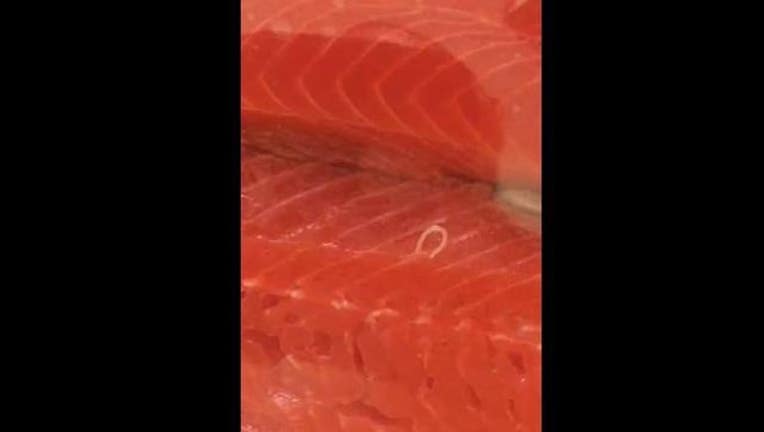Woman finds parasite in fish purchased from Richmond Costco

Courtesy of Felicia Cipolla
RICHMOND, Calif. (KTVU) - An El Sobrante woman was "grossed out" when she found a parasite in fish she purchased at Costco in Richmond.
Felicia Cipolla, who says she's a vegan, tells KTVU her partner was planning to freeze the fish before eating it. As she was unpacking the groceries and contemplating cutting the fish to freeze she noticed a worm-like creature in the fish meat.
Cipolla says "I saw it moving around. It just grossed me out so much." She went to show her partner and said he was "grossed out" as well."
Cipolla said at first she didn't know what was in the fish but she put the meat in an empty refrigerator in her in-law unit to keep it away from her other food.
After some Googling Cipolla learned the worm must be a parasite which she learned is a common occurrence in fish. Although it's common, Cipolla's partner still wanted to return the fish to Costco.
KTVU reached out to Costco for a statement. Costco released information that echoed Cipolla's research saying parasites in fish are a common occurrence.
Costco sent research from UC Davis stating, "All living organisms, including fish, can have parasites. Parasites are a natural occurrence, not contamination. They are as common in fish as insects are in fruits and vegetables. Parasites do not present a health concern in thoroughly cooked fish."
The research added that parasites can become a concern when consumers eat raw or lightly preserved fish including sashimi, sushi, ceviche and gravlax.
"When preparing these products, use commercially frozen fish. Alternatively, freeze the fish to an internal temperature of -4°F for at least 7 days to kill any parasites that may be present. Home freezers may not be cold enough to kill the parasites. The health risk from parasites is far less than the risk from 'unseen' illness causing bacteria which are present on almost all foods," according to UC Davis. The fish should be cooked to an internal temperature of 140 degrees to kill all nematodes and tapeworms.
UC Davis says the health risk from parasites is far less than the risk from "unseen" illness causing
bacteria which are present on almost all foods.

